Gloucestershire Volunteer Artillery: Early Officers
Introduction
In September 1859, a circular letter was sent by Lord the secretary Lord Palmerston, the secretary of state for war, to the Lord Lieutenants of candidates to the effect that the government had expressed a decided preference for artillery rather than rifle Corps in maritime neighbourhoods. The Lord Lieutenant of Gloucester the (the Earl of Ducie) thereupon addressed a letter to the Mayor of Bristol, in answer to a requisition made to him by Mr Hirst and others, who had expressed of their willingness to enrol themselves in an Artillery Corps. Informing him that the formation of an artillery Corps with headquarters in Bristol would not only receive official sanction, but would be considered a valuable adjacent to the volunteer force already established.
Major Henry Bourchier Osborne Savile, then Major of the newly formed Rifle Corps, was selected by the Lords Lieutenant of Gloucestershire and Somerset to raise the Artillery Corps of these counties. The Major was made Major Commandant of the new Artillery Corps on 21 December 1859 and which which he commanded for fourteen years retiring in 1874 and then served the Corps as the Honorary Colonel.
On the 22 November 1859, the Gloucestershire Volunteer Artillery (GVA) was formed, making it's headquarters at the Artillery Ground, Whiteladies Rd. Clifton, Bristol. The unit started with five batteries with a sixth added later. The GVA were tasked with the defence of the Bristol Channel and the ports of Bristol and Gloucester and were fully paid for and organised by the City of Bristol, it was not part of the War Office responsibilities. The motto of the GVA is 'Fidus et Audax', which is Latin, meaning 'Loyal and Audacious.'
The newly formed artillery corps on May 15., 1860, appointed had William McAdam from the Royal Artillery, as captain and adjutant and their surgeon as A.G. Power, late of S.A.S. [we are not certain what this was].
| Battery | Captain | 1st Lieutenant | 2nd Lieutenant |
| No. 1 | Henry Grant | Francis Tothill | H. L. Bean |
| No. 2 | F. P. Egerton | Sholto Vere Hare | G. Garrard |
| No. 3 | J. Battersby-Harford | F. Walker-Savage | Gore Langton |
| No. 4 | W. Montague Baillie | Charles D. Cave | St. Vincent Ames |
As well as the above officers each battery also had four Sergeants, four Corporals, three trumpeters, and 75 men.
In March 1880, the Gloucestershire Volunteer Artillery had become the 1st Gloucestershire Artillery Volunteers (Gloucester and Somerset).
The first administrative Brigade was consolidated into a single Corps with headquarters at Bristol, and designated the 1st Gloucestershire Artillery Volunteer Corps. The Corps consisted of 720 all ranks and distributed in nine batteries as follows:-
Batteries Nos. 1 to 6 at Clifton
Battery No. 7 at Newham
Battery No. 8 at Gloucester
Battery No. 9 at Clevedon
The Officers
Second Lieutenant George Samuel James Boyd M.R.C.S., L,R.C.P., L.S.A.,
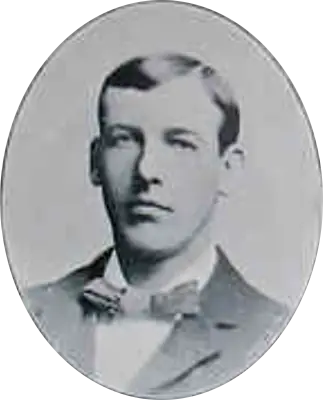 He was born in Llanstadwell, Pembrokeshire on 7 January 1869;, the son of George Boyd late of the Royal Navy of Takapuna Auckland, New Zealand.
He was born in Llanstadwell, Pembrokeshire on 7 January 1869;, the son of George Boyd late of the Royal Navy of Takapuna Auckland, New Zealand.
He was educated at private schools and at the London Hospital. The examining Board in England of the Royal Colleges of Physicians and Surgeons reported that he had passed the first Board Examination of Materia Medica and Pharmacy in The Lancet of 22 April 1893.
He lived at 10, Adelaide Terrace, Portishead.
He was the late Surgeon Royal Navy Mission to Deep Sea Fishermen; Captain of the United Hospitals Rowing Club, 1893-95; and Honorary Treasurer of the Portishead Golf Club.
Resources
The Lancet - 22 April 1893
Charles Henry Cave
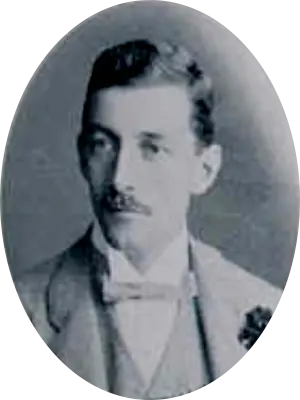 He was born at Clifton on 17 March 1861, the second son of Sir Charles Daniel Cave, Bart., J.P., D.L. His mother was Edith Harriet, the daughter of John Addington Symonds of Clifton. The family homes were at Cleve Hill, Gloucester, and Sidbury Manor, Devon. He was educated at Eton and New College, Oxford where he graduated with a B.A. in 1883.
He was born at Clifton on 17 March 1861, the second son of Sir Charles Daniel Cave, Bart., J.P., D.L. His mother was Edith Harriet, the daughter of John Addington Symonds of Clifton. The family homes were at Cleve Hill, Gloucester, and Sidbury Manor, Devon. He was educated at Eton and New College, Oxford where he graduated with a B.A. in 1883.
He held a commission in the Gloucestershire Artillery Volunteers from 1884 to 1897.
On 12 January 1892, he was married to Beatrice Julia, the third daughter of Sir Frederick Martin and Mary Christian Williams, at St. Paul's, Clifton. He was created a Baronet on 24 May 1896, and in 1898, he was living at Perran, Durdham Down, Bristol.
He was a banker and a member of the Bristol Old Bank. In 1899, he published "A History of Banking in Bristol from 1750 to 1899".
He represented Bristol Ward on the City Council from 1894. He was also Chairman of the Redland District Conservative Association, Treasurer of Bristol Working Men's Conservative Association, Treasurer of Bristol School of Art, Treasurer of Bristol Music Festival and President of the Dolphin Society.
The Cave family were landowners in Downend (parish of Mangotsfield, Gloucestershire) which is on the eastern outskirts of Bristol. There is a Cave Close and Cave Cottages in Downend. On the wall of these cottages, off the Badminton Road, Downend, is their emblem on a plaque.
Captain Herbert Coates
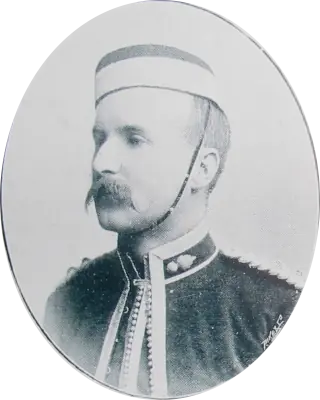 He was born in Bristol, the son of the son of William Coates Esq., of Clifton; Morthoe, North Devon; and Clevedon on 8 December 1857. He was educated at Bristol, and became a member of the firm of Clifton and Coates, solicitors, Bristol.
He was born in Bristol, the son of the son of William Coates Esq., of Clifton; Morthoe, North Devon; and Clevedon on 8 December 1857. He was educated at Bristol, and became a member of the firm of Clifton and Coates, solicitors, Bristol.
He lived at Walton Park, Clevedon and was Second Lieutenant in the Gloucestershire Volunteer Artillery in 1888; First Lieutenant, 1889; Captain, November, 1897. He then commanded No. 11 Company at Weston-super-mare.
Major and Honorary Lieutenant Colonel Herbert Coates, (retired) was awarded the Volunteer Officers Decoration on 15 September 1908.Honorary Major John Francis Ranald Daniel
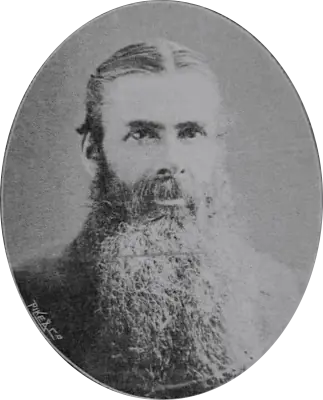 He was born on 25 November 1829, and educated at private schools and afterwards studied law and civil engineering and became involved with many local railway companies in the region.
He was born on 25 November 1829, and educated at private schools and afterwards studied law and civil engineering and became involved with many local railway companies in the region.
He took an active part in the formation of the 1st Gloucestershire Volunteer Rifle Corps, as drill and musketry instructor. He joined the Gloucestershire Volunteer Artillery in 1869 then raised first a detachment and then a company at Portishead where he lived at Fircliff.
He became a Second Lieutenant, G.V.A. on 19 March 19 1869; First Lieutenant on 28 July 1871; Captain on 30 March 1881; then Honorary Major on 11 May 1886. He was awarded a Volunteer officers decoration for long and efficient service, and a sword presented by officers of Gloucestershire Volunteer Rifles.
Surgeon-Captain David Samuel Davies, M.D., Lond., D.P.H. Cantab., M.R.C.S., L.R.C.P.
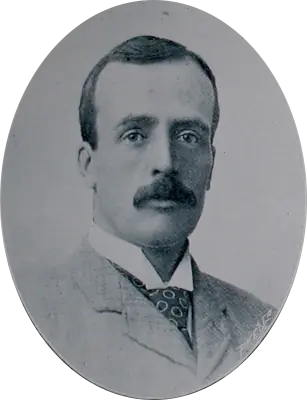 He was born in Bristol the son of the son of David Davies, J.P., M.R.C.S. and educated locally and and at St. Thomas's Hospital, London.
He was born in Bristol the son of the son of David Davies, J.P., M.R.C.S. and educated locally and and at St. Thomas's Hospital, London.
He was Medical Officer of Health for Bristol. Between 1885 and 1886 he was Medical Inspector to H.M. Local Government Board on Cholera Survey and General Sanitary Survey of England. He succeeded his father as Medical Officer of Health for the City and Port of Bristol in 1886 and was Fellow and late President of the West of England and South Wales Branch Society of Medical Officers of Health.
Dr. D.S. Davies was Surgeon-Captain in the 1st Gloucestershire Volunteer Artillery. He was Honorary Medical Officer for H.M. training ship "Formidable" and member of the British Medical Association member of Branch Council and Vice-President Public Health Section, 1894. He was Lecturer on Hygiene at University College (Medical School) and a member of the Bristol Medico-Chirurgical Society. In December 1897, Dr. Davies was presented, by the President of the Bristol Medico-Chirurgical Society, with an address signed by 181 local practitioners. This acknowledged his services to the public and the constant assistance he had given to the profession.
In 1898, his address was 60, Oakfield Road, Clifton.
Honorable-Lieutenant-Colonel Sir Edmund Harry Elton, Bart., C.C.
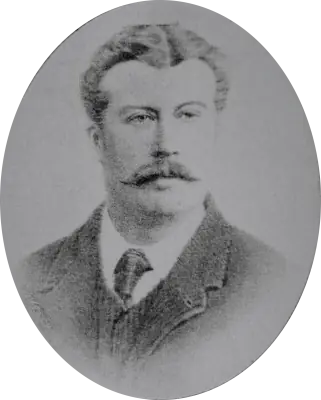 He was born in Clifton, Bristol on 3 May 1846, the son of Edmund William Elton, Esq. He was educated at Bradford College, Berks, and Jesus College, Cambridge.
He was born in Clifton, Bristol on 3 May 1846, the son of Edmund William Elton, Esq. He was educated at Bradford College, Berks, and Jesus College, Cambridge.
He rowed in the Jesus College boat in 1865; won the "Larking" Challenge Sculls in 1864. He became High Sheriff for Somerset in 1895. He was the originator and designer of "Elton Ware" pottery from the Clevedon Elton Sunflower Pottery, which has been awarded nine gold and two silver medals, mostly at international exhibitions.
In 1868, he married his cousin Mary Agnes, second daughter of Sir Arthur Hallam Elton and produced two sons and three daughters: Ambrose born in 1869, Kathleen Agnes Rhoda, Winifred Lucy, Bernard Arthur, and Angela Mary.
He was commissioned as Captain on 24 September 1881, became Major on 19 August 1893, and later was Honorable-Lieutenant-Colonel 1st Gloucestershire Volunteer Artillery, Clevedon.
He died on 17 July 1920.
Captain James Henry Frowde
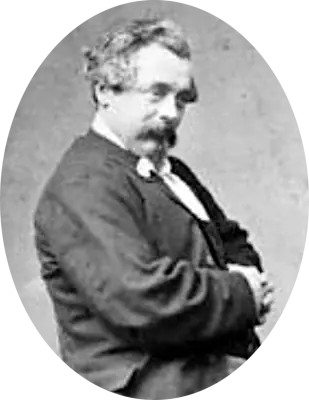 James Henry Frowde 1831 - 1899 was a circus performer, clown and acrobat. who bought three estates in Gloucestershire.
James Henry Frowde 1831 - 1899 was a circus performer, clown and acrobat. who bought three estates in Gloucestershire.
From 1878 until 1892 he was a Captain in the Gloucestershire Artillery Volunteers.
He began to write his memoirs on 21 June 1894, using a foolscap account-book (13 x 8 inches) with 45 leaves (of which 39 are used for the memoirs) that already contained some lists and figures connected with his local concerns and societies (No. 8 Battery, 1st Gloucester Artillery Volunteer Corps, among other things).
Surgeon-Lieutenant-Colonel Francis Poole Lansdown, M.R.C.S., L.S.A.
See Surgeon-Lieutenant-Colonel Francis Poole Lansdown, M.R.C.S., L.S.A.
Lieutenant Colonel Francis Killigrew Seymour Metford CB, OBE, VD, TD
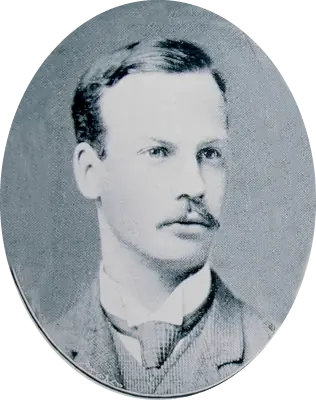 He was born in Clifton, Bristol in 1863, the son of surgeon Joseph Seymour Metford, Esq. who lived at Holcombe House, Minchinhampton.
He was born in Clifton, Bristol in 1863, the son of surgeon Joseph Seymour Metford, Esq. who lived at Holcombe House, Minchinhampton.
He was educated at Clifton College before becoming a member of the firm of Priday, Metford and Co., millers, Gloucester.
He joined the Bristol Rifles in 1880, and promotoed to Lieutenant in 1883. He commanded the Gloucester Company of Artillery from 1892. 2/I South Midland Brigade was formed in the autumn of 1914, commanded by Lieutenant Colonel F.K.S. Metford formerly of 3rd Gloucestershire Bty, and in January 1915 it joined the 2nd South Midland Division. By 28 May, the division was in France, but on 19 June Lieutenant Colonel H.A. Koebel (a Regular officer) took over command of the brigade and Lieutenant Colonel Metford returned to England. In 1919, he was awarded the Order of the British Empire (OBE).
He was awarded the Freeman of the City of Bristol.
On 12 May 1934, he was appointed Honorary Colonel of the GVA.
Resources
Gloucestershire Volunteer Artillery - Wikipedia
Second Lieutenant Alexander Ogilvy, B.A. , B.C., F.R.C.S.I.
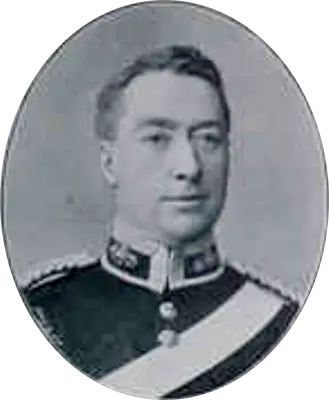 He was born in Dublin on 18 November 1863, the son of Alexander Ogilvy Esq. of Dublin.
He was born in Dublin on 18 November 1863, the son of Alexander Ogilvy Esq. of Dublin.
He was educated at Coleraine Academical Institute, Trinity College Dublin, Royal college of Surgeons, Ireland; and the universities of Vienna and Heidelberg.
In 1867, his father was a Justice of the Peace and married Frances (Fanny), formerly Barklie, nee Atkinson. They lived at Apsley Lodge, Rathgar, Co. Dublin. A brother, David, was born on 28 May 1872 also in Dublin. David went on to become Superintendent of Long Grove Mental Hospital (1912-1934)
Resources
David Ogilvy, M.D. (1872-1934) - Epsom & Ewell History Explorer
Colonel Frederick Cusac Ord CB VD TD DL
First Lieutenant Ralph Ernest Platt
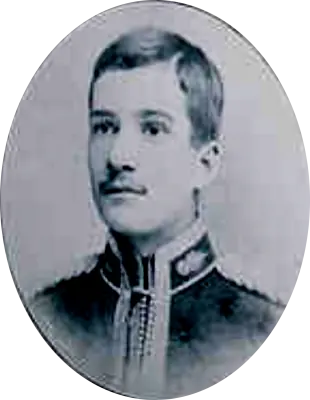 He was born in Gloucester in 1876, the son of James Platt Esq., J.P., a former Mayor of Gloucester. He was educated at Malvern College, and joined the Gloucestershire Volunteer Artillery 1893, and promoted to First Lieutenant in 1897.
He was born in Gloucester in 1876, the son of James Platt Esq., J.P., a former Mayor of Gloucester. He was educated at Malvern College, and joined the Gloucestershire Volunteer Artillery 1893, and promoted to First Lieutenant in 1897.
An an inspecting engineer by profession he travelled in China, Japan, and the U.S.A.
Colonel Henry Bourchier Osborne Savile
Major Walter Carless Swayne, B.S. Lond., M.D., Ch.B. Bristol
Lieutenant Francis Tothill J.P.
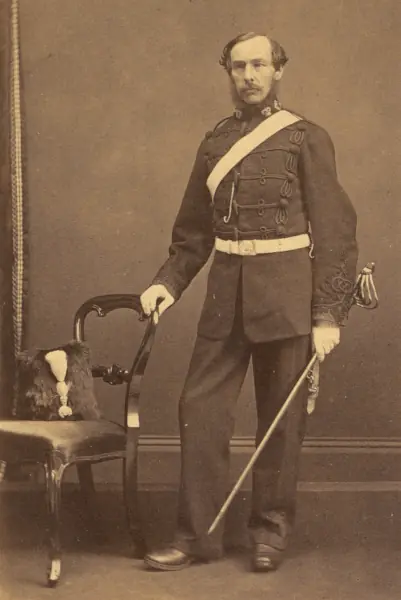
Francis Tothill, Gloucestershire Volunteer Artillery
Photo very kindly supplied by Erica Pownall
When the Gloucestershire Volunteer Artillery was formed in May 1860, Francis Tothill was appointed First Lieutnenat of No. 1 Battery.
The following needs to be fact checked but as I understand it, he was born in Shropshire on 14 May 1823, the son of William Tothill and Hannah Tothill (Darby).
He became a Barrister at Law at The Grove, Stoke Bishop where he died on 1 June 1900, aged 77.
He was twice married. First to Jane Digby, who bore Ann Loftus George; Mary Darby Tothill and Frances Jane D Godwin (Tothill). He later married Frances Margaret Galbraith on 23 August 1858 at the Parish Church Cheltenham by the Rev. E. Walker. Frances Margaret bore Colonel Francis William Galbraith Tothill; Edward Reynolds Tothill and Admiral Sir Hugh Henry Darby Tothill.
Their son, Lieutenant Edward Reynolds Tothill was in the 1st Battlion, Prince of Wales, North Staffordshire Regiment and died on 29 June 1882 at Athlone, Ireland. He was aged 20, and buried in Cornamagh Cemetery.
Resources
Francis Tothill - Geni
Headstone Information Cornamagh Cemetery - Irish Midlands World War One Casualty Information
Marriage Notices 1855-59 - Ulster Ireland Genealogical Resource n County Tyrone
Major Alfred Bond Trestrail MBE & Lieutenant Colonel Alfred Ernest Yates Trestrail B.A.
See The Trestrail's
Surgeon Captain Alderman John Hancocke Wathen
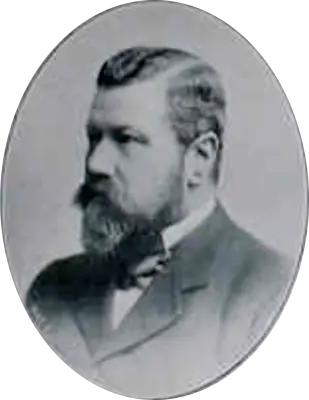 He was born at Marloes Court, Pembrokeshire in 1844, the son of William Dean Wathen, Esq., M.R.C.S.
He was born at Marloes Court, Pembrokeshire in 1844, the son of William Dean Wathen, Esq., M.R.C.S.
He was educated privately and at University College, London; physician and surgeon, M.R.C.S., L.R.C.P., L.S.A. He represented Clifton Ward on the Bristol City Council, 1893 - 96 and became Alderman in 1897 and was a member of the Health and other Committees.
Living at 16, York Place, Clifton, he was President of the Grateful Society, 1894 - 95:
His obituary in the Bristol Medico-Chirurgical Journal of December 1906, read:
We have to record the death, at the age of 61, of Mr. John Hancocke Wathen, one of the regular attendants at the meetings of the Bristol Medico-Chirurgical Society, and a man well known in professional and political circles in Bristol. His death took place at his residence, Sea Walls, Stoke Bishop, on October 5th, and was somewhat sudden. He had been in failing health for some two or three years, and took but little exercise; he had been conscious that he had a dilatation of the aorta, proved by an X-ray examination two years ago, and the immediate cause of his death was the bursting of this into the aesophagus.
Born at Marloes Court, Pembrokeshire, he received his early education at Fishguard, and afterwards was at school at Weston near Bath. Later on he studied at University College Hospital and the Royal Orthopædic Hospital, and became a Member of the Royal College of Surgeons in 1865. Two years later he took the degree of L.R.C.P. Edinburgh.
His first connection with Bristol was his election as Assistant House Surgeon at the General Hospital, and he was afterwards House Surgeon at the West London Hospital. In 1867 his father, who was one of the ornaments of the profession, an able country doctor, broke his leg, and the son was recalled to Fishguard and practised for thirteen years with eminent success.
Here he performed many operations of general surgery and midwifery, and father and son enjoyed the confidence and friendship of the whole countryside. With the object of rising in the profession and having a larger scope for his powers, he came to Clifton in 1880, and started in private practice, hoping to become attached to one of the public medical institutions. He entered into partnership with Dr. Steele, was partner with him for twelve years, and during this period was Medical Officer to the Clifton Wood Industrial School, when he especially turned his attention to skin diseases, and established a skin dispensary of his own in Park Row.
Resources
Bristol Medico-Chirurgical Journal - December 1906
Honorary Major Sir Joseph Weston-Stevens
Major Mark Whitwill, Junior
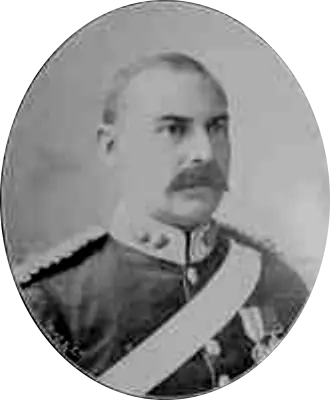 He was born in Bristol in 1857, and educated at private schools and at Mill Hill School, London.
He was born in Bristol in 1857, and educated at private schools and at Mill Hill School, London.
He was a shipowner, shipbroker, and philanthropist. He worked at Mark Whitwill & Son, Shipowners and Brokers and General Shipping Agents, a firm established by his father, Mark Whitwill (1826-1903), in Bristol in 1875, and was made partner in 1883. They were managers of Great Western Line of Steamers, Bristol & New York, and agents for the Royal Mail Steam Packet Company, the Allan Line of Steamers to Quebec, and the National Line of Steamers to New York.
He lived at Parkdale, Belgrave road, Clifton. In 1883, he married Emma Reece May (1860-). He died on 5 December, 1921, in Keynsham.
He holds the Long Service Medal for twenty years Volunteer Service, [V.D.] and the Jubilee Medal presented to officers in Charge of units on Jubilee Day , 22 June 1897.
The Western Daily Press of 6 December 1921 printed his obituary under the headline Death of Mr M. Whitwill: A Notable Man of Shipping
We regret to announce the death of Mr Mark Whitwill, who had been in a poor state of health for some time, and had been living at Downend.
Mr Mark Whitwell was the son of the well-remembered Mr Mark Whitwell, who for a long period was leading member of the shipping trade and one of the founders of the Childrens' Hospital. The son, after receiving his education at Mill Hill School, joined his father in business, and became as popular as he was well-known in the city. Like his father, he was associated with Highbury Chapel, and took an active interest in several local institutions, especially the Childrens' Hospital, and societies to promote the welfare of the boys. Besides being a member of the Local Marine Board, he served as President of Chamber of Commerce and the Commercial Rooms, and was a good friend of the Sailors' Home.
For many years Mr Whitwill acted as Consul for Belgium and Vice-Consul for Uruguay. During the war he rendered good service to the Belgian refugees and was decorated by the King of Belgium. He was chairman of the West of England and Bristol Channel Port and Transit Committee, and for his services in that position was made a Commander (Civil Division) of the Order of the British Empire. In early life he joined the Bristol Artillery Volunteers, and he served also in the Territorial Force, attaining to the rank of lieutenant-colonel, receiving the coverted award of V.D. for long service. He entered the City Council in June 1906, and was at once appointed to the Docks Committee, where his experience and sound judgement were highly valued. He was made a justice of the peace in 1912. He was a Conservative and a member of the Constitutional Club. His son, Mr Mark Whitwill, who is in the business, rendered special service in the war, and received distinguished awards, including the D.S.O. He also has a son named Mark, so that the name is continued to the fourth generation. Mr Whitwill was brother-in-law to Mr Holman Gregory, K.C., M.P. who married his sister.
Resources
Whitwill, Mark, 1857-1921 - McGill Library
Lieutenant William Augustus Woodley
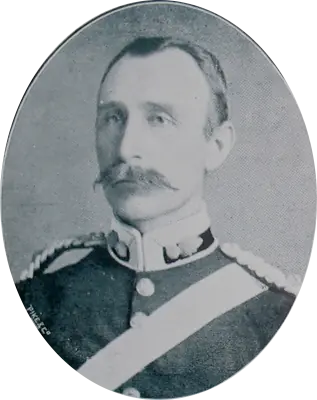 He was born in Taunton, Somerset om 14 December 1855, and educated at Taunton College School and Clifton College, Bristol.
He was born in Taunton, Somerset om 14 December 1855, and educated at Taunton College School and Clifton College, Bristol.
He became a solicitor in 1879 and practiced at Taunton and Bristol. He was also a proprietor of various papers and lived at 3, Worcester Terrace, Clifton.
He married Ada Constance (nee Strachan), and they had a son, Fabian Strachan, who was born on 19 July 1888. The yalso had a daughter.
For three years he was a member of the 20th Middlesex (Artists) Rifle Volunteers and then eleven years in the Gloucestershire Volunteer Artillery and later still the Honorary Secretary to the corps finance committee.
He spent three years Captain of the Clifton Rowing Club.
Resources
Club Members 1872-1945 - Clifton Rugby Football Club History
Captain John Worth
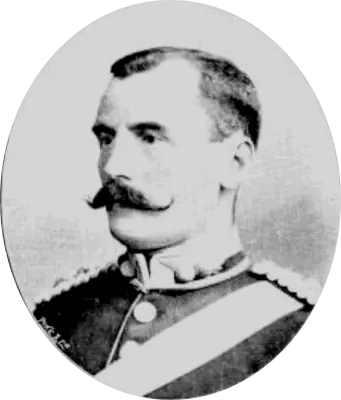 He was born in Bristol on September 21st, 1859, the son of H. L. Worth, Esq., of Clifton.
He was born in Bristol on September 21st, 1859, the son of H. L. Worth, Esq., of Clifton.
Living at Warkwood, Lower Redland Road and educated at Clifton College. He joined No. 6 company of the G.V.A., as a Gunner in November, 1880. He became a Bombardier in January, 1884; Sergeant in April 1886; Regiment Quartermaster Sergeant in December, 1886; Second Lieutenant in February 1888; Lieutenant in October 1888. He transferred to No. 4 Company in July 1893, as a Captain.
In the 1881 Census he was unmarried, and living at 7 Wetherall Place, Clifton, Bristol. He is listed as a wine & spirit merchant's clerk. The 1898 Census gives his address as Warkwood, Lower Redland Road, Clifton, Bristol. The 1901 Census says that he was a Wine Merchant as was his father Henry Llewellin Worth (1829-1892).
The regiment orders, that were published at the time in local newspapers, of 26 July, 1902, says that "A detachment, of 1 officer (Major Worth), 1 Sergeant and 8 men have been selected to attend the Coronation of his of His Majesty the King, on August 9th. Special orders as to trains, &c., will be sent to the men selected."
In September 1902, it was announced that the The king has conferred the Coronation medal in silver on all officers of Volunteers who commanded detachments at the Coronation, and the bronze medal on the senior sergeant on duty that day.
He received King Edward VII Silver Coronation Medal in September 1902, and awarded the Volunteer Officers Decoration on 15 November 1904.
He died circa 1937.
Resources
Colonel Thomas Henry Yabbicom V.D.
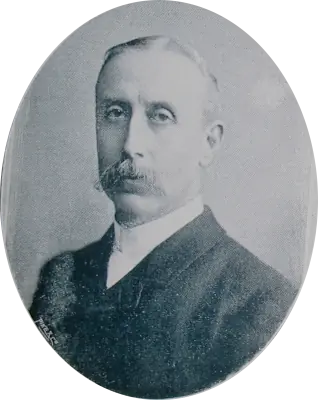 He was born on 29 December 1841, the son of Henry Yabbicom, a stoneware manufacturer of Bristol, and received his general education in his native city, at Dr. Real's private school.
He was born on 29 December 1841, the son of Henry Yabbicom, a stoneware manufacturer of Bristol, and received his general education in his native city, at Dr. Real's private school.
In 1859, at the age of 18, he was articled to Mr. F. Ashmead, then Borough Engineer and Surveyor of Bristol. He became assistant ot Mr. Ashmead in 1868.
In 1894, he became City Engineer, and in 1897, City Surveyor where he supervised the construction of the new roads and bridges in the late 19th and early 20th century Bristol. He was responsible for the wood block paving that was a feature of so many of the pre-Second World War streets in the city.
He was a keen botanist and was Botanical Secretary of the Bristol Naturalists' Society in 1866.
He was a member of the Volunteers for nearly 40 years, joining as a gunner in 1860, as a gunner. He was promoted to Lieutenant on 23 November 1869, and eventually retired from the GVA on 27 November 1897, as Colonel.
He died 17 October 1927, at his residence, 23, Oakfield Road, Clifton, Bristol.
Resources
Proceedings of the Bristol Naturalists' Society
Thomas Henry Yabbicom - Grace's Guide To British Industrial History
Sources and Resources
Derek Driscoll's original pages
Contemporary Biographies 1890 (PDF, 7.03Mb)
Contemporary Biographies 1890
Contemporary Biographies 1890
The Times
